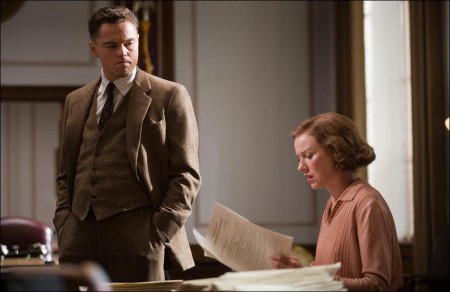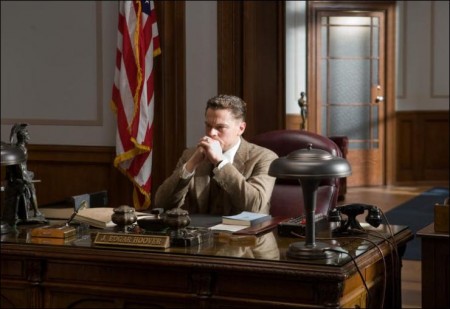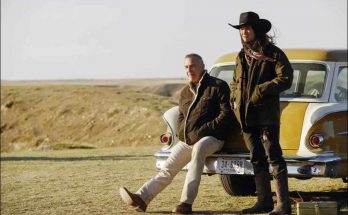J. Edgar Hoover was a complex and compelling figure who captivated America and whose legacy is still felt in the halls of the FBI building named for him. He was the catalyst for modern forensics and created a system of federal laws that transformed our country in a multitude of ways that remain relevant today. Both feared and revered, the man was a dichotomy whose public and private lives would spark rumor and innuendo, but, thanks to his eternal secrecy, the question of who he really was remains largely speculative to this day.
Director Clint Eastwood, who grew up during his reign, was intrigued by the chance to explore Hoover on film. “Hoover was a top cop, or a top ‘G-Man,’ as they called them in those days, but I didn’t really know much about him. He kept a high profile—he was seen with movie actors and famous writers at social gatherings and what have you—but he was an enigma in many ways.”
Therefore, when the screenplay for “J. Edgar” crossed his desk, the filmmaker says, “I was already curious, especially about how the screenwriter, Dustin Lance Black, had approached it. It was really a character study. I liked the story a lot.”
The film’s star, Leonardo DiCaprio, agrees. “Lance wrote this incredible screenplay that both Clint and I were attracted to instantly. Hoover has always been this mythic, iconic figure in American history, yet somewhat shrouded in mystery in both his political and personal life. To tackle his life story seemed daunting, and Lance did it in such an emotionally moving way.”
“This is a story about relationships,” Eastwood says, “intimate interactions between Hoover and everyone around him, from those closest to him—Clyde Tolson, Helen Gandy, his mother—all the way to Robert Kennedy and other well known political figures, even presidents. If it had just been a biopic, I don’t think I would have wanted to do it. I like relationship pictures, I like exploring why people do or did certain things in their lives.”
The director also looked forward to working with DiCaprio for the first time. “Leo’s very bright and he likes doing offbeat parts that stretch his imagination,” he says. “I knew this one would be tough, both mentally and physically, but he was very dedicated, and I think that really shows in his performance.”
“This was one of the most challenging characters I’d ever seen on the page,” DiCaprio says of Black’s script, which spanned Hoover’s entire professional life, beginning with the Bolshevik invasions in 1919, when communism was arriving on American soil. “Communism was almost like a terrorist movement in Hoover’s eyes, and he battled it and other perceived enemies throughout his career. Lance analyzed him as a young man and an old man, critiquing him in every possible way.”
Read the Full Production Notes for J. Edgar >>
Visits: 113




